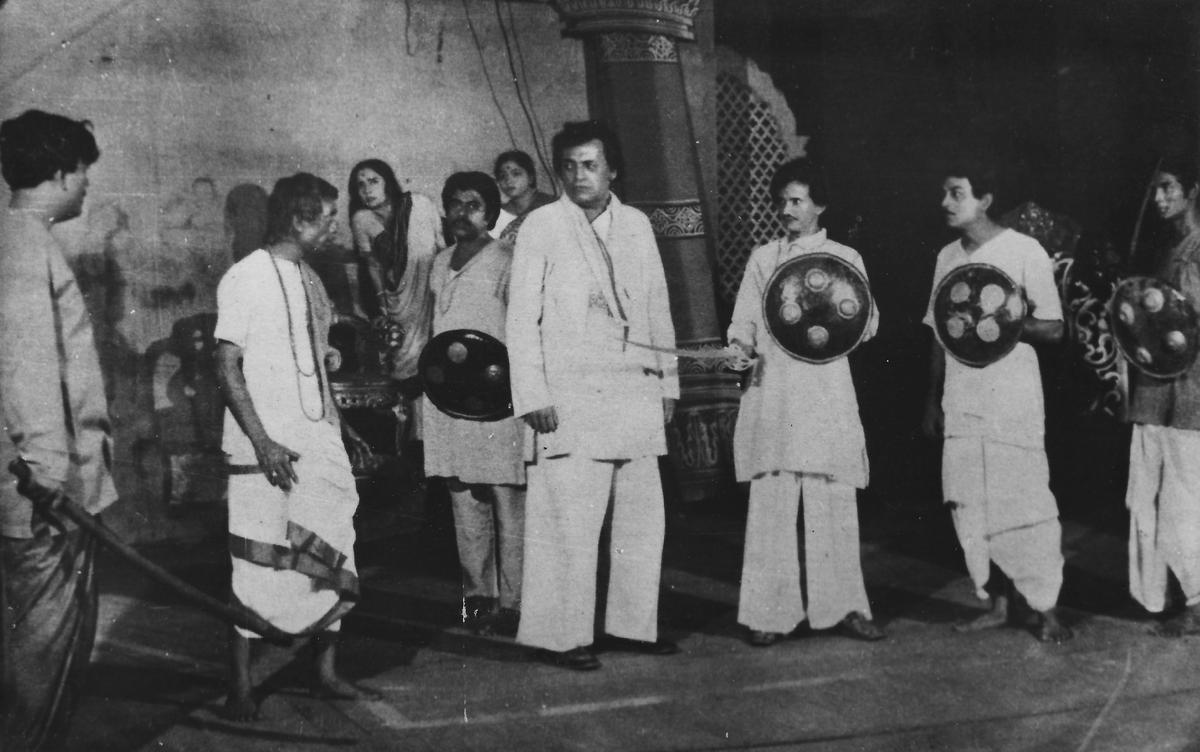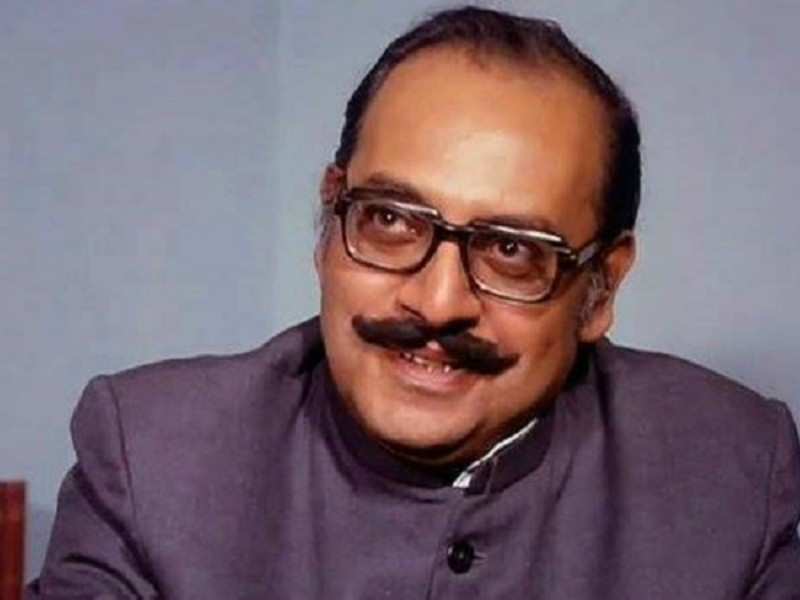SOURCE: SCROLL, THE HINDU, WIKIPEDIA
It has been fourteen days since I last pinned this newspaper piece on Google news' 'saved stories' section. In the deluge of articles marked to be read later, I decided to give it a read rather unexcitedly. I saw the thumbnail view and my enthusiasm dampened further.
The headline read in Scroll as ' How Ananda Lal translated Utpal Dutt's 50-year-old political play 'Barricade' into English'. I saw the names in the headline, and couldn't relate to it. On reading the first paragraph, several ideas started swarming my mind.
"Where should i place it? Mmmm... Literature in Translation, perhaps? But who are these writers? How has it managed to stay in the limelight even after 50 years or share a column in a popular daily? The research will take time. There are other sections to handle."
I groan.
But wait... curiosity always takes better of me; and this time, I again hit the goldmine.
I Googled Utpal Dutt, and suddenly his face brought back drawing-room memories while watching the movie, 'Golmaal'. I remember my parents' enthusiasm overcoming across the movie in B4U while flipping the channels. We were only 15 minutes late into the movie. Smirkingly, my brother and I looked at each other over my parents' glee.
' Yeh purane zamaane ka film...Kuch aur lagao na'
' Aree ruko... dekho toh'
Little did i know that twisted, unfathomable wheel of time would one day make me write a piece on it. Serendipity, i think. Oh, i smirked again!
'Golmaal'(1979) was directed by Hrishikesh Mukherjee, who is regarded as one of the greatest filmmakers in Indian Cinema. Dutt also starred in the lead with Amitabh Bachhan in ' Saat Hindustani'. He also played main characters as villains in ' Barsaat Ki Ek Raat', ' The Great Gambler' and others. He also appeared in several Bengali films. Some popular mentions are; Mrinal Sen's ' Bhuvan Shome ( 1969), Satyajit Ray's 'Agantuk' (1991) and others.
THE THEATRE ACTOR

With a career spanning over 40 years in Hindi/Bangla cinema, Dutt was a Bengali theatre actor at its core. He became a recognised figure in the Modern Indian Theatre, when he founded 'Little Theatre Group' in 1949. Before metamorphosing into a political and radical theatre, it enacted plays by Shakespeare, Brecht.
His plays became a vehicle in resonating Marxist ideologies."Leftist, topical, trailblazing, spectacular- this was how spellbound the critics and the theatre-goers were!"
So much research goes into writing an article, phew!
On supplementing my read with another piece on Utpal Dutt's Barricade' in The Hindu, I came to know that Dutt like Badal Sircar wrote 50 plays each and were both renowned playwrights in post-Independent India, but unlike Sircar, Dutt's work never received the same recognition in translation.
On continuing to read from Scroll, the excerpts of the interview on Ananda Lal and his experience in translating Utpal Dutt's 'Barricade' into English; I gathered his views on theatre, art, political ideology plus the relevance of the play in inking nasty details of a party split, instability, assassinations leading to Emergency that has contemporary reverberations.
Now as the thread of search continued, I dug deeper into the works of Utpal Dutt both literary and cinematic. Literary adaptations into motion pictures share a long tradition of artistic collaborations. One such fruition was The Last Lear, a 2007 English film based on his play 'Aajker Shahjahan' directed by Rituparno Ghosh.
Another notable piece of information that caught my eye was James Ivory's 'Shakespeare Wallah'. A director of American descent in collaboration with Ismail Merchant spun the tale loosely based on the life of Geoffery Kendal, a British actor who performed the plays of Shakespeare throughout India. Interestingly, Dutt's tryst with theatre began with Shakespeare's plays and in Kendall, he found his Guru. It doesn't cease to get amusing here. Furthermore, Shashi Kapoor who played a leading role in this film married Jennifer Kendal, his co-actor Felicity's elder sister.
Now, I would really like the readers to read those two articles or if they find any additional material to diversify their reading.
Wait... I forgot to add one more piece of interesting detail. The screenwriter of Ivory's 'Shakespeare Walla' was Booker Prize and Academy Award-winning writer Ruth Prawer Jhabvala. Known for her longtime collaboration with Ivory and Ismael, she is the only writer to have won both Booker and Oscar. A few honourable mentions are:
In 1975, she won Man Booker for Heat and Dust
In 1983, she won BAFTA for Best Adapted Screenplay ' Heat and Dust'.
In 1986, she won the Academy Award for Best Adapted Screenplay for 'A Room with a View'( again adapted from E.M Forster's eponymous novel), and again in 1992 for Forster's novel Howard's End.
Readers, we cannot forget the translator of 'Barricade', Ananda Lal- former professor, theatre critic and translator- at Jadhavpur University. Click here to read more about him and the Writers Workshop. The translation of Barricade is published by Seagull Books.

